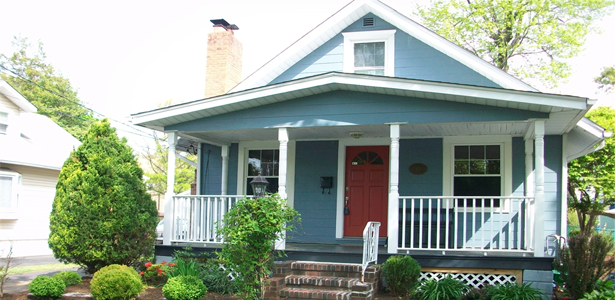A guide to Property Depreciation
Post on: 29 Май, 2015 No Comment

Share
- Share on Facebook Tweet this post Pin this post Share this post
Depreciation is something that will help your bottom line come tax time.
Just like you claim wear and tear on a car purchased for income producing purposes, you can also claim the depreciation of your investment property against your taxable income.
Seasoned property investors know all about this one. In fact, some will take depreciation into account before purchasing their next investment. But it’s not just for the pros. Anyone who purchases a property for income-producing purposes is entitled to depreciate both the items within the building and the cost of the building itself – against their accessible income.
Seasoned property investors will take depreciation into account before purchasing their next investment.
Every year, thousands of dollars go unclaimed by property investors who are none the wiser. All it usually takes is a qualified quantity surveyor to inspect your home and prepare a report for your accountant. The savings can be substantial.
So for anyone who’s unfamiliar with the process – it pays to learn.
10 tips to understanding property depreciation
Here’s a basic guide to lead the way. Let’s call it Deprecation 101.
1. What is property depreciation?
There are two types of allowances available:
- depreciation on Plant and Equipment;
- and depreciation on Building Allowance.
Plant and Equipment refers to items within the building like ovens, dishwashers, carpet and blinds etc.
Building Allowance refers to construction costs of the building itself, such as concrete and brickwork. Both these costs can be offset against your assessable income.
2. So how does a depreciation schedule help me?
Simple. A depreciation schedule will help you pay less tax. The amount the depreciation schedule says you claim effectively reduces your taxable income.
A depreciation schedule will help you pay less tax.
Depreciation is known as a “non-cash deduction” because it’s the ONLY deduction that you don’t have to pay for on an ongoing basis – the deductions are in-built within the purchase price of your property. All other deductions, such as interest levies, will hurt your hip pocket on an ongoing basis.
3. Is my property too old to claim depreciation?
The simple answer is no. If your residential property was built after July 1985 you will be able to claim both Building Allowance and Plant and Equipment. If construction on your property commenced prior to this date, you can only claim depreciation on Plant and Equipment. But it will still be worthwhile.
Commercial and industrial properties are subject to varying cut off dates.
Here is a chart showing the relevant timelines for differing types of construction.
4. Shouldn’t my accountant prepare this report?
If your residential property was built after 1985 your accountant is not allowed to estimate the construction costs. Tax Ruling 97/25 issue by the Australian Taxation Office (ATO) has identified Quantity Surveyors as properly qualified to make the appropriate estimate of the construction costs, where those costs are unknown.
If your residential property was built after 1985 your accountant is not allowed to estimate the construction costs.
Real estate agents, Property Managers and Valuers are not allowed to make this estimate.
Chief Executive Officer of the Australian Institute of Quantity Surveyors (AIQS), Terry Aulich, advises that whereas accountants can offer advice around other aspects of tax depreciation, construction costs and property depreciation are highly technical domains in their own right.

“Quantity surveyors are specialists in the accurate measurement of construction costs with a view to maximizing a client’s financial position in relation to their property assets. Only a fully qualified quantity surveyor brings the appropriate education, experience and training to provide reliable figures upon which to base a property tax depreciation schedule. One doesn’t want to rely on best guesses when dealing with the ATO – especially when there is professional help available,” says Terry.
Terry also suggests that clients should check the credentials of anyone claiming to be a quantity surveyor. He recommends that the first question clients should ask their quantity surveyor is whether they are a member of the AIQS, as this gives an assurance that the individual has completed an accredited qualification.
5. Will you need to inspect my property?
The Australian Institute of Quantity Surveyors (AIQS) Code of Practice stipulates that site inspections are necessary to satisfy ATO requirements.
A trained Quantity Surveyor will ensure all depreciable items are noted and photographed. This guarantees you won’t miss out on any deductions. The documentation can then be used as evidence in the event of an audit.
Its very common for Quantity Surveyors to liaise directly with the tenant or property manager in order to cause minimal disruption to the tenant. The best time to get a Quantity Surveyor to inspect your property is immediately after settlement and hopefully just before the tenant has moved in.
The best time to get a Quantity Surveyor to inspect your property is immediately after settlement and hopefully just before the tenant has moved in.
6. My property is renovated. Can I still claim?
Yes. We will need to know how much you spent on renovations. This is an ATO obligation. If the previous owner completed the renovations you are STILL entitled to claim depreciation. In either case, where the cost of renovation is unknown, a Quantity Surveyor has been identified by the ATO as appropriately qualified to make that estimation.
7. How much will my depreciation schedule cost?
The cost of preparing a tax depreciation schedule varies according to the type of property you’ve purchased, location, size and numerous other factors.
Generally you find most of the leading Quantity Surveying companies offer a money back guarantee to save you twice your fee in the first year or they give you the report for free.
So you have absolutely nothing to lose – and deductions to gain!
And Quantity Surveyors fees are 100% tax deductible.
8. How much will I save?
Each property is different and many varying factors must be considered when preparing a property depreciation schedule . There are several depreciation calculators on the market. I suggest you Google “depreciation calculator” to find one. I wouldn’t bother paying for a property depreciation estimate – the best ones on the market are free in my opinion.
More about property depreciation
9. How long will it take to complete my schedule?
Your depreciation schedule will take approximately 2-3 weeks to complete, as long as the Quantity Surveyor can inspect your property without delay.
10. I bought my property 3 years ago. Can I still make a claim?
Yes you can. Your accountant can amend your previous tax returns up to two years back. There are some exceptions, so contact your tax agent or the ATO for clarification.














